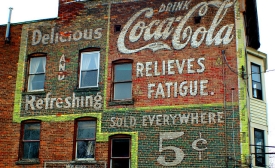joseph nye
Many in the country and across the globe believe that the US is slipping away from being the world's most powerful nation. [...] He (Joseph Nye) corroborates his arguments with facts and figures on the indices of America's favourable geography, demographics, military power and soft power, purchasing power parity and science and innovation.
Yet it seems that the Chinese are the most devoted students of Nye. In fact it is not too much of an exaggeration to say the Chinese have become obsessed with soft power.
As official Washington prepares for the late April visit of Japanese Prime Minister Shinzo Abe and his scheduled address to a joint session of Congress, many aspects of the bilateral relationship between the United States and Japan will rightly be feted, including a robust strategic alliance and significant economic ties between the two nations.
An increasing number of unsupported, but plausible, claims assert a widening gap between the policy and academic communities in international relations. Certainly both IR scholars and IR practitioners perceive a growing gap between the academic and policy communities. But how would we know if there were an actual gap and whether it was growing or shrinking?
A Pew Poll conducted last year found that that only 28% of Americans believe that their “country stands above all others.” This is down 10 percentage points from just three years earlier.
Mr Nye, a veteran observer of global affairs, is more optimistic. He expects that America will still play the central role in the global balance of power in the 2040s. What, after all, is the alternative?
Harvard professor Joseph Nye, well known for his explorations of soft power, considers the American prospect in his newly published book, Is the American Century Over? His answer is a carefully constructed "No," which is based partly on the fact that there is no logical successor to convincingly claim dominance over the next century.

Philip Seib reviews Nye's latest book on American soft power.







